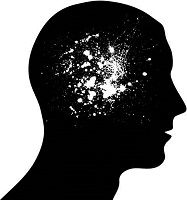Article
Can Non-Migraine Headache Lead to Dementia?
Author(s):
Data from the HUNT studies suggest there may be a link between non-migrainous headache and dementia.

A German study in the Journal of Headache and Pain suggests a link between non-migrainous headache and dementia. The study data is from a third iteration of the seminal HUNT surveys in Norway’s Nord-Trøndelag.
HUNT is considered one of the most extensive cohort studies ever conducted in any country. It includes more than 80% of the population in the homogenous population of the citizens of Nord-Trøndelag. HUNT contains a unique database of personal and family medical histories collected during three intensive studies (HUNT 1, 2 and 3) since 1984.
Headache is quite common in adults, although its prevalence tends to dip significantly after the age of 50. But for those in middle age who still have chronic headaches, a number of co-morbid conditions (many of them psychiatric) have been identified. Yet, relatively little research has evaluated the relationship between headache and cognitive status and dementia, and the majority of previous studies have focused on migraine headaches. Most of those studies found little relationship between migraine and cognitive decline.
According to the researchers, “An earlier HUNT study classified some individuals as non-demented because they had managed to answer two questionnaires and a personal interview. No specific cognitive tests were performed. After that study was published, the dementia registry has been expanded with about 50% more individuals, and in addition, we have new data including a group of definitely non-demented aged 55—89 years, verified by performance on tests of memory and intelligence.”
The current study used data from HUNT2 and HUNT3, surveys, and logistical regression with adjustment for confounding factors. Headache, in particular non-migrainous headache, was more likely to be reported at baseline in HUNT2 among those who later developed dementia, when compared to the reference group. Conversely, headache and non-migrainous headache were less likely to be reported in HUNT2 among those who later were included in the sample of confirmed non-demented.
The authors cautioned that they cannot rule out that for some individuals, early or presymptomatic condition of dementia was causing headache, and not headache that later caused dementia. “Since all had managed to answer two questionnaires in HUNT2, it is not likely that any of them had developed a dementia at this time,” the researchers observed.
However, some degree of mild cognitive impairment in some participants cannot be ruled out. For a total of 38 patients the interval between reporting headache and the diagnosis of dementia was less than five years. However, the mean interval until diagnosis of dementia was nine years.
They also note that headache and dementia may share an underlying causal factor. If, indeed, headache is a true risk factor for dementia, the researchers noted, then “the underlying mechanisms must be elucidated. Furthermore, adding headache questions in the clinical evaluation of cognitive function should also be considered.”





